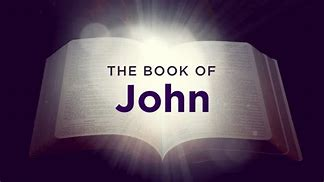Division Among the People - {Interlinear <Greek>}
7:40 - • {οὖν<oun>} When → they → heard {ἀκούσαντες<akouō>} these {τούτων <houtos>} words, {τῶν λόγων<ho logos>} some {Ἐκ<ek>} of → the {τοῦ<ho>} people {ὄχλου <ochlos>} said, {ἔλεγον·<legō>} “This {οὗτός<houtos>} really {ἀληθῶς<alēthōs>} is {ἐστιν<eimi>} the {ὁ<ho>} Prophet.” {προφήτης.<prophētēs>}
7:41 - Others {ἄλλοι<allos>} said, {ἔλεγον·<legō>} “This {οὗτός<houtos>} is {ἐστιν <eimi>} the {ὁ<ho>} Christ.” {χριστός·<Christos>} But {δὲ<de>} some {οἱ<ho>} said, {ἔλεγον·<legō>} “Is → • {γὰρ<gar>} the {ὁ<ho>} Christ {χριστὸς<Christos>} to → come {ἔρχεται;<erchomai>} from {ἐκ<ek>} Galilee {τῆς Γαλιλαίας<ho Galilaia>} ? {μὴ<mē>}
7:42 - Has → not {οὐχ<ou>} the {ἡ<ho>} Scripture {γραφὴ<graphē>} said {εἶπεν <legō>} that {ὅτι<hoti>} the {ὁ<ho>} Christ {χριστός;<Christos>} comes {ἔρχεται <erchomai>} from {ἐκ <ek>} the {τοῦ<ho>} offspring {σπέρματος<sperma>} of → David, {Δαυεὶδ<Dauid>} and {καὶ <kai>} comes • from {ἀπὸ<apo>} Bethlehem, {Βηθλεὲμ<Bēthleem>} the {τῆς <ho>} village {κώμης<kōmē>} where {ὅπου<hopou>} David {Δαυεὶδ<Dauid>} was?” {ἦν<eimi>}
7:43 - So {οὖν<oun>} there → was {ἐγένετο<ginomai>} a → division {Σχίσμα <schisma>} among {ἐν<en>} the {τῷ<ho>} people {ὄχλῳ<ochlos>} over {δι᾽<dia>} him. {αὐτόν.<autos>}
7:44 - Some {τινὲς<tis>} • {δὲ<de>} of {ἐξ<ek>} them {αὐτῶν<autos>} wanted {ἤθελον <thelō>} to → arrest {πιάσαι<piazō>} him, {αὐτόν,<autos>} but {ἀλλ᾽<alla>} no one {οὐδεὶς<oudeis>} laid {ἐπέβαλεν<epiballō>} hands {τὰς χεῖρας.<ho cheir>} on {ἐπ᾽<epi>} him. {αὐτὸν<autos>}
7:45 - The {οἱ<ho>} officers {ὑπηρέται<hypēretēs>} then {οὖν<oun>} came {Ἦλθον <erchomai>} to {πρὸς<pros>} the {τοὺς<ho>} chief priests {ἀρχιερεῖς<archiereus>} and {καὶ<kai>} Pharisees, {Φαρισαίους,<Pharisaios>} • {καὶ<kai>} who {ἐκεῖνοι· <ekeinos>} said {εἶπον<legō>} to → them, {αὐτοῖς<autos>} “Why {διὰ τί<dia tis>} did → you → not {οὐκ <ou>} bring {ἠγάγετε<agō>} him?” {αὐτόν;<autos>}
7:46 - The {οἱ<ho>} officers {ὑπηρέται·<hypēretēs>} answered, {ἀπεκρίθησαν <apokrinomai>} “No one ever {οὐδέποτε ἄνθρωπος.<oudepote anthrōpos>} spoke {ἐλάλησεν<laleō>} like this {οὕτως<houtōs>} man!” •
7:47 - • {οὖν<oun>} The {οἱ<ho> Pharisees {Φαρισαῖοι·<Pharisaios>} answered {ἀπεκρίθησαν<apokrinomai>} them, {αὐτοῖς<autos>} “Have → you {ὑμεῖς<sy>} also {καὶ <kai>} been → deceived {πεπλάνησθε;<planaō>} ? {μὴ<mē>}
7:48 - Have → any {τις<tis>} of {ἐκ<ek>} the {τῶν<ho>} authorities {ἀρχόντων <archōn>} or {ἢ<ē>} the {τῶν<ho>} Pharisees {Φαρισαίων;<Pharisaios>} believed {ἐπίστευσεν <pisteuō>} in {εἰς<eis>} him {αὐτὸν<autos>} ? {μή<mē>} • {ἐκ <ek>}
7:49 - But {ἀλλὰ<alla>} this {οὗτος<houtos>} crowd {ὁ ὄχλος<ho ochlos>} that {ὁ <ho>} does → not {μὴ<mē>} know {γινώσκων<ginōskō>} the {τὸν<ho>} law {νόμον <nomos>} is {εἰσιν.<eimi>} accursed.” {ἐπάρατοί<eparatos>}
7:50 - Nicodemus, {Νικόδημος<Nikodēmos>} who {ὁ<ho>} had → gone {ἐλθὼν <erchomai>} to {πρὸς<pros>} him {αὐτὸν<autos>} before, {πρότερον, <proteros>} and • who • was {ὢν<eimi>} one {εἷς<heis>} of {ἐξ<ek>} them, {αὐτῶν·<autos>} said {λέγει <legō>} to {πρὸς<pros>} them, {αὐτούς,<autos>}
7:51 - “Does → our {ἡμῶν<egō>} law {ὁ νόμος<ho nomos>} judge {κρίνει<krinō>} a → man {τὸν ἄνθρωπον<ho anthrōpos>} without {ἐὰν μὴ<ean mē>} first {πρῶτον <prōtos>} giving him a hearing {ἀκούσῃ παρ᾽αὐτοῦ<akouō para autos>} and {καὶ <kai>} learning {γνῷ <ginōskō>} what {τί<tis>} he → does {ποιεῖ;<poieō>} ?” {μὴ<mē>}
7:52 - They → replied, {Ἀπεκρίθησαν<apokrinomai>} • {καὶ<kai>} • {εἶπαν<legō>} • {αὐτῷ· <autos>} “Are {εἶ;<eimi>} you {σὺ<sy>} from {ἐκ<ek>} Galilee {τῆς Γαλιλαίας <ho Galilaia>} too {καὶ<kai>} ? {μὴ<mē>} Search {ἐραύνησον<eraunaō>} and {καὶ <kai>} see {ἴδε <horaō>} that {ὅτι<hoti>no {οὐκ<ou>} prophet {προφήτης <prophētēs>} arises {ἐγείρεται. <egeirō>} from {ἐκ<ek>} Galilee.” {τῆς Γαλιλαίας<ho Galilaia>}

Nicodemus, who earlier sought out Jesus in the darkness, now seems ready to become his defender. While not actually making declarations of Christ’s true status, he at least tries to slow down the plans of Christ’s enemies. Nicodemus is not yet ready fully to declare his loyalty to Christ, but there has been movement in his heart that will mature further in its dedication (cf. 19:39–42).
Though the change may come in stages, knowing Jesus ultimately changes everything about us. To borrow some phrases from an old hymn, the gospel “charms our fears” of rejection and “breaks the power” of our addiction to people’s approval. For we have, in Christ, the approval of God himself. He is our Father who sings over us (Zeph. 3:17).
References:
All contents are reposted from ESV.org.
“Scripture quotations are from The ESV® Bible (The Holy Bible, English Standard Version®), copyright © 2001 by Crossway, a publishing ministry of Good News Publishers. Used by permission.
All rights reserved.”
Comments